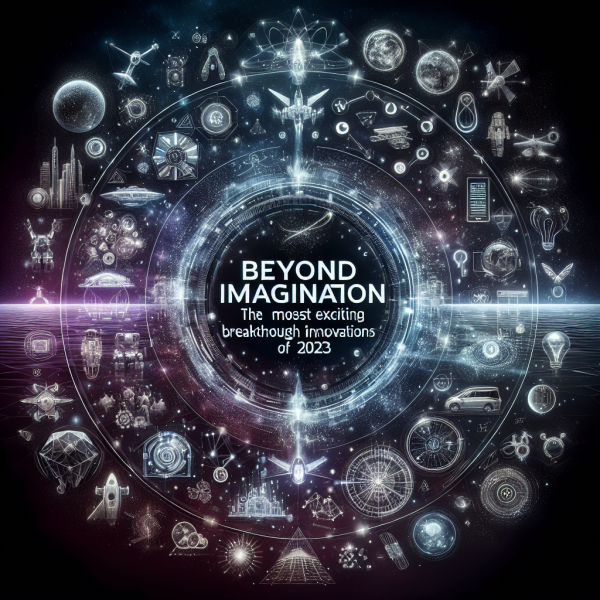Blockchain Beyond Cryptocurrency: Real-World Applications in 2024

Blockchain Beyond Cryptocurrency: Real-World Applications in 2024
As we step into 2024, the conversation surrounding blockchain technology is evolving beyond its foundational association with cryptocurrency. While Bitcoin and Ethereum were once the primary focus, the spectrum of blockchain applications now stretches across diverse sectors, promising innovations that can reshape industries and improve efficiencies. This article explores some compelling, real-world implementations of blockchain technology in various sectors in 2024.
1. Supply Chain Management
One of the most significant applications of blockchain technology has been in supply chain management. With increasing globalization and the complexity of supply chains, companies are turning to blockchain to enhance transparency and traceability. In 2024, we see major corporations integrating blockchain into their logistics to authenticate and track products from origin to consumer.
For instance, companies like Walmart and IBM have pioneered initiatives that utilize blockchain to track food products, which has been instrumental in swiftly identifying contamination and reducing the time to recall affected products. Blockchain allows all stakeholders—from suppliers to retailers—to access the same immutable record, thereby enhancing trust and reducing disputes.
2. Healthcare
The healthcare sector is increasingly leveraging blockchain for data management and patient privacy in 2024. Medical records have long been fraught with issues related to privacy, security, and interoperability. Blockchain offers a decentralized solution that secures sensitive information while allowing patients to have control over their data.
Healthcare systems are now creating blockchain networks that enable seamless sharing of patient data between institutions. This not only enhances the speed of care but also supports research by providing reliable aggregated data. Additionally, the use of smart contracts for managing health insurance claims has begun, facilitating automatic validation and payment processes that significantly reduce administrative burdens.
3. Digital Identity Verification
Digital identity verification has seen a significant transformation thanks to blockchain technologies in 2024. Traditional identity verification processes are often cumbersome, prone to fraud, and require multiple intermediaries. Blockchain provides a decentralized solution wherein individuals can maintain control over their identities without relying on centralized authorities.
Countries like Estonia have already adopted blockchain-based digital identity systems. By leveraging cryptographic technology, residents can access government services, vote, and sign documents securely. In the corporate realm, companies are exploring blockchain-based identity solutions for Know Your Customer (KYC) compliance, allowing for a streamlined approach to customer verification while enhancing privacy and security.
4. Voting Systems
As the world grapples with the challenge of citizen engagement in democratic processes, blockchain offers a promising solution for secure and transparent voting in 2024. With the potential to mitigate risks of fraud and ensure the integrity of elections, various municipalities and nations have begun experimenting with blockchain-based voting platforms.
By utilizing blockchain, votes are recorded as immutable and tamper-proof transactions, allowing for real-time tracking and auditing. This transparency instills public confidence in the electoral process. Early implementations in cities like Salt Lake City and countries such as Switzerland have suggested that blockchain can facilitate remote and secure voting for citizens, especially those overseas.
5. Intellectual Property Protection
Intellectual property (IP) rights are critical for innovation, yet safeguarding these rights remains a challenge. In 2024, blockchain technology has emerged as a robust solution for IP protection, enabling creators to register their works on a decentralized ledger.
Platforms built on blockchain allow artists, authors, and inventors to timestamp their creations securely. This not only helps in asserting ownership but also simplifies the licensing process. Smart contracts can automate royalty payments, ensuring that creators receive fair compensation for their work whenever it is used. As industries such as music, art, and software increasingly adopt these practices, litigation over IP disputes may see a decline.
6. Real Estate Transactions
The real estate industry has been known for its inefficiencies, with lengthy processes riddled with paperwork and middlemen. In 2024, blockchain is simplifying transactions by providing a transparent and secure platform for buying, selling, and leasing properties.
Smart contracts allow for automatic execution of agreements when conditions are met, reducing the time and cost typically involved in real estate transactions. Platforms like Propy are pioneering blockchain-based property sales, facilitating cross-border transactions without traditional bank constraints. Moreover, tokenization of real estate is becoming more prevalent, allowing fractional ownership and offering investors a new way to diversify their portfolios.
Conclusion
As blockchain technology continues to mature, its potential to streamline operations, enhance transparency, and empower users is becoming increasingly clear. The applications explored in this article represent just a fraction of what blockchain can offer. From supply chains to digital identities and beyond, the transition away from solely cryptocurrency-focused discourse is not just necessary; it is imperative for harnessing the full power of blockchain in today’s interconnected world. As we advance further into 2024 and beyond, the innovative possibilities of blockchain will likely continue to surprise and benefit a wide array of industries.














